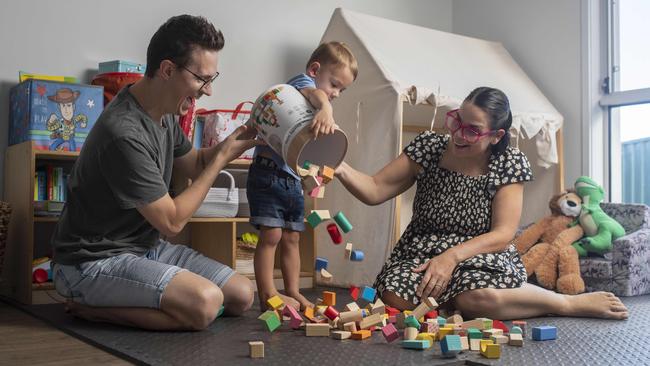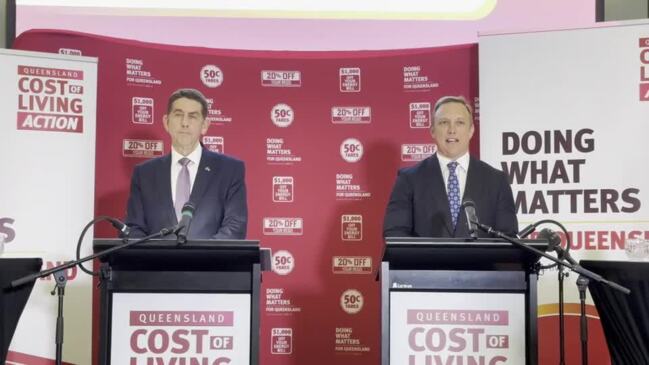Queensland budget: Cost of living relief a PR winner for families
Family like the Pennycuicks have proven the biggest winners from Queensland’s budget, designed to ease the burden of the cost-of-living pressure ahead of the state election.

Families such as the Pennycuicks have proven to be the biggest winners from Queensland’s budget, designed to ease the burden of the cost-of-living pressure ahead of the state election.
Nicki and Chris Pennycuick, both 34, have been doing all they can to balance their weekly budget, including selling their unused electronics, moving to one car, and researching the best ways to reduce energy bills.
Now the single-income Brisbane family is looking forward to rebuilding its savings with the help of an extra $3.74bn budget package, after having to dip into their rainy-day funds to stay on top of unexpected bills and their mortgage, which rose by $1000 a month in line with interest rates.
Ms Pennycuick said bill relief “can’t be a bad thing”.
“We’ve been trying to play catch-up after Covid, refilling the money pot so that if something goes wrong, it’s sitting there,” she said.

“It’s every family’s desire to feel comfortable and not be living week to week and stressed. That’s the goal, right? Every little bit helps.”
One of the most welcome cost-of-living measures in the budget was the $1000 energy bill rebate which, when coupled with the federal budget chip-in, will shave $1300 off the family’s annual power cost. The Pennycuicks will save almost $50 a week when public transport fares are slashed to 50c for six months from August, while tickets along the privatised airport line have been halved.
Queensland car, motorbike and trailer owners will also receive a 20 per cent discount on their vehicle registration, equating to $50-$85 in savings a year.
The couple’s son, Jeremiah, is too young to take advantage of the expanded FairPlay program, but Ms Pennycuick knows many families that will take advantage of $200 vouchers for children aged between five and 17 years to play junior sports, which has increased from a government cost of $32.5m to $40m.
Ms Pennycuick, who is currently looking for part-time work, said it was a win-win for Queenslanders and the government in the lead-up to the state election in October.
“It can’t hurt them to do that, it’s been a rough couple years,” she said.
“The government’s not all that bad.
“I do think they’re trying to help a little bit, but I do think there’s a PR benefit there too.”



